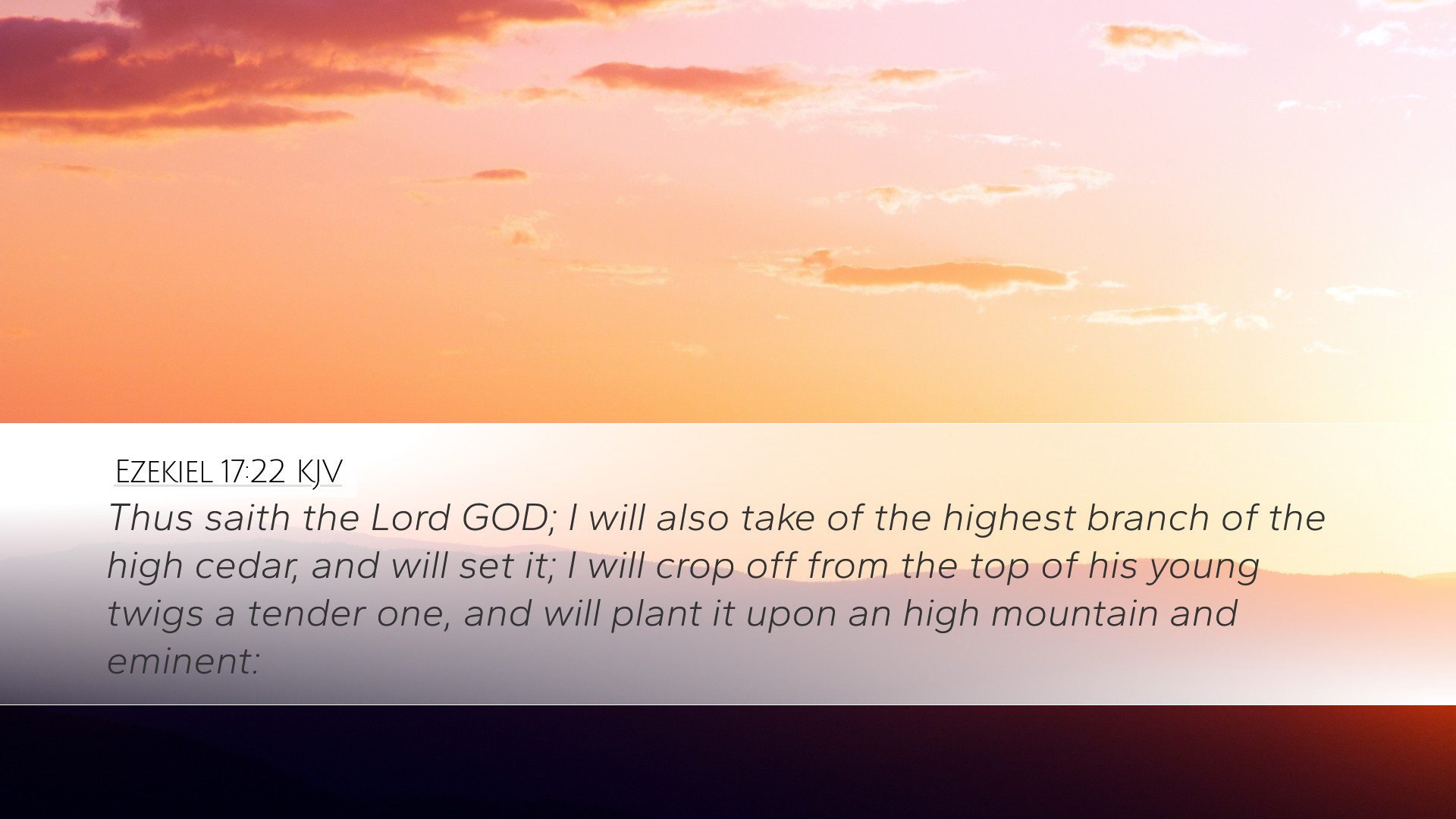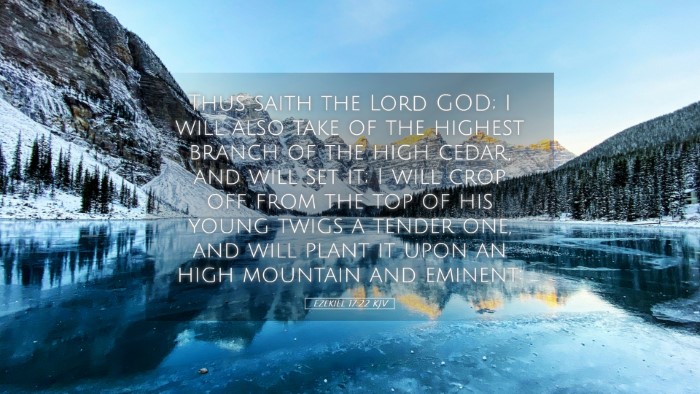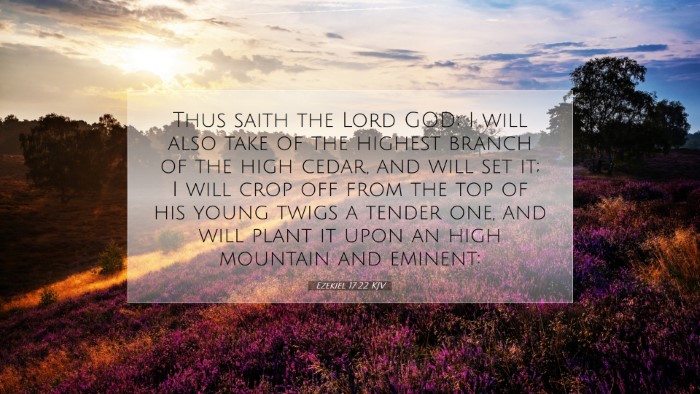Commentary on Ezekiel 17:22
Verse: "Thus saith the Lord God; I will also take of the highest branch of the high cedar, and will set it; I will crop off from the top of his young twigs a tender one, and will plant it upon a high mountain and eminent."
Introduction
Ezekiel 17:22 captures a metaphorical vision that reflects God's sovereign plans for Israel within the broader context of hope and restoration. Various public domain commentaries provide profound insights into the theological implications of this verse, delving into its historical significance and prophetic meanings.
Theological Insights
1. Divine Sovereignty:
Matthew Henry emphasizes that the act of God taking a high branch and planting it signifies His authority and control over nations. The cedar tree, a symbol of strength and grandeur, represents both Israel and the royalty associated with it. God’s intervention demonstrates His willingness to not only prune what is existing but to create anew from the remnants of what remains.
2. Restoration and Hope:
Albert Barnes notes that God’s promise in this verse is fundamentally a promise of restoration. It reveals that despite the current desolation faced by Israel, God is preparing for rejuvenation. The 'tender branch' indicates a new beginning, embodying the hope that God will not abandon His people but rather cultivate them afresh.
3. The New Covenant:
Adam Clarke interprets this planting as a foreshadowing of Christ and the establishment of the New Covenant. The tender branch represents Jesus, who emerges from the line of David and is planted in the new spiritual Zion. This planting on a 'high mountain' signifies the elevation and exaltation of Christ as King, set apart for divine purposes.
Historical Context
Understanding the historical context surrounding Ezekiel is crucial for grasping the depth of this prophecy. The nation of Judah was in turmoil, having faced significant devastation due to Babylonian conquest. This verse serves as a prophetic promise to the exiled people that God would bring about a restoration in a way they could not yet envision.
- The Cedar Imagery: The cedar tree, revered in the ancient Near East for its durability and height, symbolizes both the monarchy of Judah and the Davidic line, which God promises to preserve.
- High Mountain Significance: Mountains in biblical literature frequently symbolize strength, stability, and the presence of God. The choice of a high mountain for planting indicates a position of divine elevation and authority.
Commentary Reflections
As pastors, students, and scholars reflect on this verse, several practical applications emerge from the theological underpinnings and historical circumstances.
- God's Creative Power: This verse is a reminder of God’s ability to create life from what seems lifeless. It speaks to the power of regeneration in both personal faith and community restoration.
- Hope in Desperation: The promise of new growth amidst devastation encourages believers to maintain hope even when circumstances appear bleak. It challenges them to trust in God’s faithful provision.
- The Role of the Church: Given the New Testament application of this verse, it speaks to the church’s mission to grow and thrive under Christ’s lordship, urging congregations to plant seeds of faith in high places.
Conclusion
Ezekiel 17:22 serves as a powerful testament to God's unwavering commitment to His people. Through divine sovereignty, hopes of restoration, and prophetic foreshadowing of Christ, the verse encapsulates key theological themes that resonate deeply with personal and communal experiences of faith. As we reflect on this passage, let us remain assured of God’s transformative power and His sovereign plan to restore and grow His people in align with His divine will.


